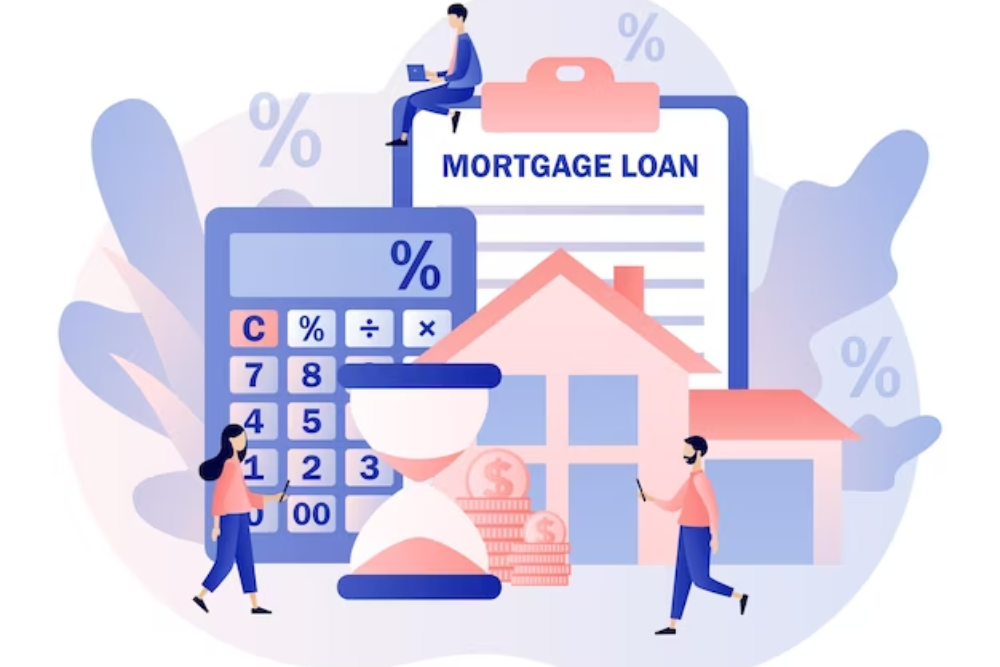Preface
Loan against property is a financial tool offered by the lending institution to fulfill the credit need of society, as the name Loan against property (LAP) itself explains its purpose and meaning, i.e., loan amount acquired after pledging the property. LAP is denoted as a secured personal loan, also known as a mortgage loan.
When a property is pledged against a loan, lending institutions evaluate them considering certain factors; one of the critical factors is the determination of Loan to value (LTV) ratio; by finding this ratio bank ensures that the lent amount to the borrower is genuine and would be used only for the purpose mentioned.
When a borrower pledges the property, lending institutions evaluate that property for LAP, ensuring the factors we’ll discuss in today’s module, so stick around.
Location of the property
The location of the pledged property plays a crucial role in the approval or denial of the loan against the property. There are some locations where lending institutions deny funding due to a lack of legal clearance or if the pledged property is unauthorised or is not covered as per norms and regulations implemented by the government of India, which may lead to the rejection of your loan against property (LAP) application.
Apart from it, the pledged property must be situated within the jurisdiction suggested. If the property exceeds the distance where lending institutions don’t have any of their branches, it may lead to rejection or disapproval.
Market Value
After the approval of the location of the property, the primary factor that the lending institution will evaluate is the current market value of the pledged property. Generally, LTV in Loan against property ranges from 60-75 % of the appraised property value.
LTV ratio ensures the maximum amount one can get from property pledged; the ratio also varies whether the property is commercial, residential, self-occupied, rented or vacant; also applicant’s profile plays a significant role.
Legal verification of the property
Lending institutions do the background check of the pledged property to examine the legalities and authorisations associated with it; legal verification includes questions like who is the owner of the property, in whose possession the property is, who are the co-applicants of it, including whether the property is dispute free or not, In case if a property found disputed it may lead to rejection of the LAP application. Being a borrower, one must own the property in his name; otherwise, NOC from the owner is required.
Income Eligibility
Every bank or NBFC may differ in eligibility criteria, including income there are certain factors that determine the overall eligibility of one. Income eligibility is the most important of all, which is above Rs 50,000 for salaried individuals and above Rs 1 crore for self-employed. A good income and positive banking make it easy to avail LAP facility, as both factors help to reflect the individual’s creditworthiness and ability to repay the borrowed amount.
Credit score
The most important of all the evaluating factors that have the ability to change the game, this 3-digit number can make a significant difference. It can take your application to a stage of approval or denial. In Loan against property, a minimum CIBIL of atleast 700 or above is required to proceed further if looking for a renowned lender for the credit; LAP application of an individual below 700 credit score may get accepted, but after a proper explanation of the reason behind the low score and only a small NBFC may approve the file and that too will charge a high-interest rate.
Check your Credit score for free!
Conclusive statements
Loan against property (LAP) is a credit instrument that is in high demand among lending institutions; Loan against property (LAP) application gets fast approval and faster disbursal as it is significantly less risky than other types of loans due to the property pledged; the sanctioned amount is received against the property while the owner can still make use of the same. Loan against property allows the borrower to make dual use of it, but before accepting the application, it is imperative to evaluate it based on the factors discussed above.
Get your Loan against property (LAP) sanctioned quickly with the help of OneNDF – India’s leading loan platform, which ensures a low-interest rate and faster disbursal.
Suggested Read:
Small Scale Industries: Explained
What is Bill of Entry: Meaning, Types & Documents required
How to Evaluate Property for Loan Against Property: Frequently Asked Questions
Q.1 How to evaluate property value?
Value of the property = Building value + Land Value
Q.2 How do banks verify property documents?
Banks appoint a separate legal team to check and verify title documents of the property, such as NOC, Title deeds etc.
Q.3 What percentage of property value is given as a loan?
Banks generally provide 80% of the total property value as loans.
Q.4 What are the 5 methods for property valuation?
- Sales comparison method
- Cost method
- Profit method
- Residual method
- Contractors method
Q.5 How do banks calculate property value in India?
Loan to value (LTV) ratio is evaluated using a formula: LTV = Principal amount / Market value of the property.


